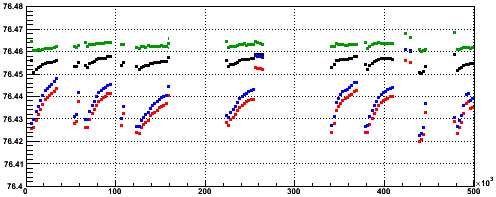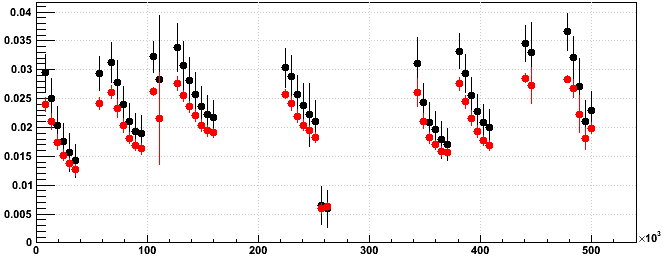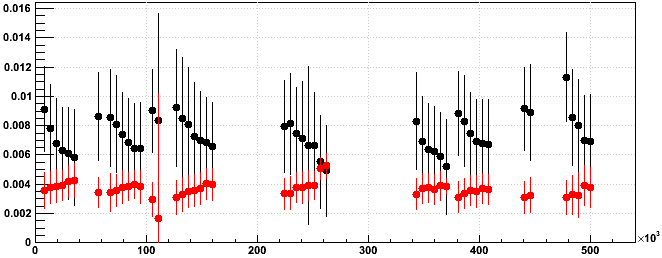- genevb's home page
- Posts
- 2025
- 2024
- 2023
- 2022
- September (1)
- 2021
- 2020
- 2019
- December (1)
- October (4)
- September (2)
- August (6)
- July (1)
- June (2)
- May (4)
- April (2)
- March (3)
- February (3)
- 2018
- 2017
- December (1)
- October (3)
- September (1)
- August (1)
- July (2)
- June (2)
- April (2)
- March (2)
- February (1)
- 2016
- November (2)
- September (1)
- August (2)
- July (1)
- June (2)
- May (2)
- April (1)
- March (5)
- February (2)
- January (1)
- 2015
- December (1)
- October (1)
- September (2)
- June (1)
- May (2)
- April (2)
- March (3)
- February (1)
- January (3)
- 2014
- December (2)
- October (2)
- September (2)
- August (3)
- July (2)
- June (2)
- May (2)
- April (9)
- March (2)
- February (2)
- January (1)
- 2013
- December (5)
- October (3)
- September (3)
- August (1)
- July (1)
- May (4)
- April (4)
- March (7)
- February (1)
- January (2)
- 2012
- December (2)
- November (6)
- October (2)
- September (3)
- August (7)
- July (2)
- June (1)
- May (3)
- April (1)
- March (2)
- February (1)
- 2011
- November (1)
- October (1)
- September (4)
- August (2)
- July (4)
- June (3)
- May (4)
- April (9)
- March (5)
- February (6)
- January (3)
- 2010
- December (3)
- November (6)
- October (3)
- September (1)
- August (5)
- July (1)
- June (4)
- May (1)
- April (2)
- March (2)
- February (4)
- January (2)
- 2009
- November (1)
- October (2)
- September (6)
- August (4)
- July (4)
- June (3)
- May (5)
- April (5)
- March (3)
- February (1)
- 2008
- 2005
- October (1)
- My blog
- Post new blog entry
- All blogs
TPC Field Cage current change with luminosity
Alexei noted at a recent TPC meeting that he observed changes in the TPC field cage currents as a function of luminosity, and speculation in the TPC group was that charge created in the TPC structure from ionization could add to the field cage current. This brought my attention to the possibility that the voltage drop over each field cage resistor can change as a function of where it is in the chain depending on where this current is created. In other words, the voltage drop over resistors near the central membrane may be less than the voltage drop over resistors near the endcap.
If this were true for all field cages equally, it would result in a change in the electric field strength as a function of position in the TPC, but we the drift velocity and other distortions are not strongly sensitive to changes in the z component of the electric field, so this would be OK. However, there is no guarantee that this is true, and a differently modified inner and outer field cage voltage drop as a function of z would lead to transverse components in the electric field! This would lead to distortions.
First some plots of the currents and current differences, then some discussion...
___________________
Here are plots of recent TPC field cage currents vs. time [sec] (arbitrary zero in time, error bars are error on the mean):
IFC East / OFC East / IFC West / OFC West

Here are plots of recent TPC field cage current differences vs. time [sec] (arbitrary zero in time, error bars are RMS):
OFC - IFC (West and East):

West - East (OFC and IFC):

___________________
The RHIC fill structure is obvious, and there is clearly a luminosity dependence in the field cage currents and their differences! The inner field cages appear to show the most variation, and their drop in currents appear to be very similar to each other. The outer field cages change a lot less, and because OFCW seems to change very little, the OFCW - IFCW difference seems to be the most affected, changing by as much as 30 nAmps over the recorded luminosities.
(Note that the data shown for time near 260e3 seconds is from zero luminosity cosmic ray runs 12098040-12098042, serving as the baseline for the differences due to static variances between the resistor chains.)
That difference represents the current change which could be attributed to about 7% of one field cage resistor being shorted, which isn't much. But that difference is likely to be more important in terms of distortions than the changes on any field cage with respect to its own zero luminosity current. It would be good to understand what that much current difference could mean in terms of distortions, but it depends on where the depletion in current originates within the resistor chain. If it's distributed over the full length of the chain, this distortion may be too small to notice. But I don't know...
-Gene
- genevb's blog
- Login or register to post comments
